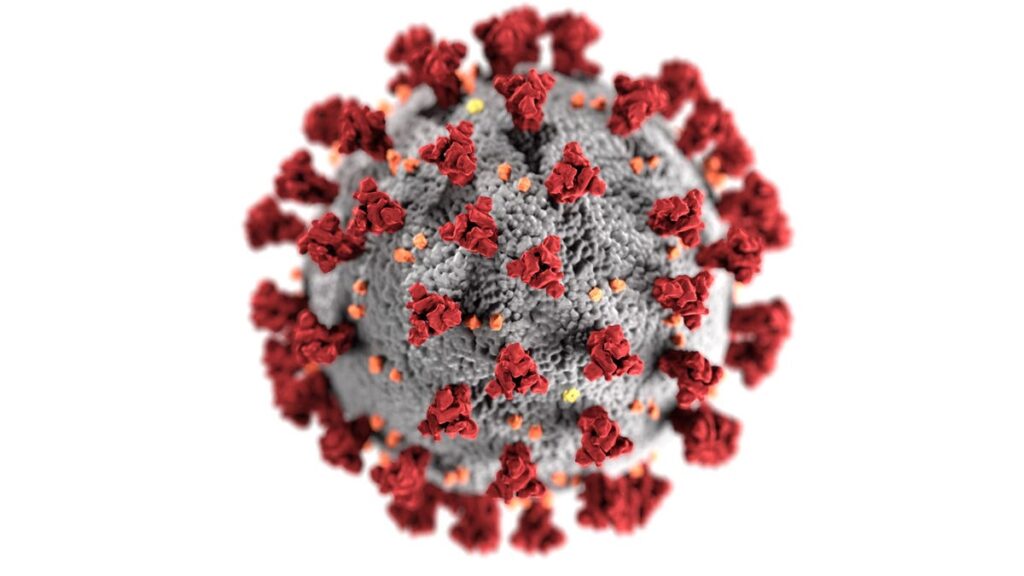SARS-CoV-2, the virus that causes COVID-19. (Photo by CDC/API/Gamma-Rapho via Getty Images)
Monday morning’s news that Drs. Katalin Karikó and Drew Weissman were awarded the Nobel Prize in Physiology or Medicine has cast a spotlight on their seminal work leading to the development of the Covid-19 vaccines. The award, however, is not for the actual development of the vaccines. Rather, Karikó and Weissman have been recognized for basic research into our immunological response to mRNA and an atypical component of RNA called pseudouridine. Moreover, they have been recognized for work done over 15 years ago, long before the pandemic began.
“The vaccines have saved millions of lives,” the official Nobel Prize press release noted, “allowing societies to open and return to normal conditions.”
Although many people have discussed the rapid, some have said rushed, development of the Covid-19 vaccines, researchers have been exploring the idea of mRNA-based therapeutics for quite some time. Indeed, scientists have speculated about mRNA-based vaccines for roughly three decades. But, as is often the case in science, the path wasn’t straightforward.
Let’s start with a basic question. What is mRNA?
Produced in our cells using DNA as a template, messenger RNA, or mRNA, itself serves as a template to produce proteins, complex molecules that do most of the work in our cells. In the early 1980s, scientists developed a technique for generating mRNA in the laboratory. Quickly, they reasoned that if synthesized mRNA were introduced into a cell, then it should lead to the production of protein. In other words, we could “trick” cells into manufacturing proteins by adding to them a synthetic mRNA molecule.
The first obstacle proved to be getting the synthetic mRNA into cells. Lipid nanoparticles proved to be the answer to that problem. Composed of lipids very similar to the ones present in our own cells, lipid nanoparticles can fuse with our cells and deliver a cargo. If synthetic mRNA is encapsulated by a lipid nanoparticle, then it can be delivered.
But two other problems arose. First, when administered to animals, synthetic mRNA could trigger a detrimental inflammatory response. Second, protein production from synthetic mRNA in mammalian cells was weak. Not much protein was produced.
Here’s where Karikó and Weissman come in.
To investigate these problems, they synthesized mRNA in which they swapped out uridine, a typical building block of mRNA, for pseudouridine, a chemically similar building block.
The results were impressive. In a 2005 paper published in the journal Immunity, they showed that when synthesized RNA molecules containing pseudouridine instead of uridine were introduced into mammalian cells, the cells were less likely to express proinflammatory cytokines, signaling molecules that lead to potentially damaging inflammation. At the time of this article, the researchers noted that their findings could, “give future directions into the design of therapeutic RNAs.”
But what about the limited protein production problem? In a 2008 paper published in the journal Molecular Therapy, Karikó, Weissman and colleagues demonstrated that pseudouridine solved that problem, too. Again, they compared the activity of synthesized mRNA containing uridine to synthesized mRNA containing pseudouridine. In a series of experiments, conducted both in cells grown in the laboratory and in mice, they saw similar results. Pseudouridine-containing mRNA led to the production of significantly more protein.
Thus, the stage was set. By replacing uridine with pseudouridine in synthesized mRNA, the risk of an unwanted inflammatory response decreased, and the amount of protein produced increased. In other words, the incorporation of pseudouridine made the concept of an mRNA-based vaccine seem much more plausible.
When the world shut down in early 2020, researchers quickly turned this concept into a reality. Less than a year after the pandemic began, Moderna and Pfizer-BioNTech began testing mRNA-based vaccines. The rapid, but not rushed, development of these vaccines certainly changed the course of the pandemic. As the Nobel Prize press release notes, these vaccines probably saved millions of lives. And for their important contributions to the process, Drs. Katalin Karikó and Drew Weissman will now go rightfully down in history as Nobel Laureates.


